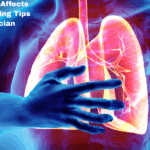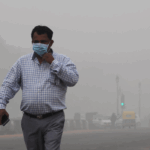
Respiratory infections are prevalent health issues that impact people across all age groups. From mild colds and flu to more severe conditions like pneumonia and bronchitis, these infections can cause significant discomfort and lead to serious health complications if left untreated. Learning effective prevention strategies is key to maintaining optimal respiratory health.
Understanding Respiratory Infections
Respiratory infections occur when viruses, bacteria, or other harmful pathogens invade the respiratory system. They typically spread through:
- Airborne droplets released by coughing or sneezing.
- Contact with contaminated surfaces.
- Weakened immune systems, making the body more vulnerable.
- Environmental factors like pollution and allergens.
Who Is Most at Risk?
Certain groups are more susceptible to respiratory infections, including:
- Infants and toddlers.
- Elderly individuals.
- People with chronic respiratory conditions such as asthma or COPD.
- Individuals with weakened immune defenses.
Top Practices to Prevent Respiratory Infections
- Practice Good Hand Hygiene
Regular handwashing with soap and water is one of the most effective ways to prevent the spread of respiratory germs. Use alcohol-based hand sanitizers when soap and water aren’t available. - Follow Proper Coughing and Sneezing Etiquette
Always cover your mouth and nose with a tissue or the inside of your elbow when coughing or sneezing. Dispose of tissues properly and wash your hands afterward. - Stay Updated with Vaccinations
Vaccines are vital in protecting against respiratory infections. Ensure all recommended vaccines, like those for influenza and pneumonia, are up to date. - Strengthen Your Immune System
A balanced diet rich in fruits, vegetables, and lean proteins helps bolster immunity. Regular exercise, sufficient sleep, and stress management further support a healthy immune response. - Avoid Close Contact with Sick Individuals
Maintain a safe distance from anyone exhibiting symptoms of respiratory infections. If you’re unwell, it’s best to stay home to prevent spreading illness to others. - Keep Your Surroundings Clean
Disinfect frequently touched surfaces such as door handles, light switches, and mobile devices. Good ventilation in indoor spaces can also reduce airborne contaminants. - Wear Masks in High-Risk Areas
Using masks in crowded or poorly ventilated places can help minimize exposure to airborne pathogens, especially during flu seasons or outbreaks. - Manage Chronic Respiratory Conditions
If you have conditions like asthma or COPD, adhere to your treatment plan and attend regular check-ups to keep symptoms under control. - Stay Well-Hydrated
Drinking plenty of fluids keeps the respiratory tract moist, helping the body expel harmful pathogens more effectively. - Avoid Smoking and Air Pollutants
Smoking and exposure to polluted environments weaken the lungs, making them more prone to infections. Quitting smoking and reducing exposure to pollutants is essential for respiratory health.
Tailored Tips for Different Age Groups
- For Children:
- Teach proper handwashing techniques.
- Keep up with vaccination schedules.
- Encourage outdoor play to support lung development.
- For Adults:
- Manage stress to strengthen the immune system.
- Maintain a nutritious diet and regular fitness routine.
- Avoid sharing personal items like utensils and water bottles.
- For Seniors:
- Get vaccinated against the flu and pneumonia.
- Monitor chronic conditions regularly.
- Stay socially connected while practicing good hygiene.
Summary
Preventing respiratory infections involves adopting good hygiene practices, maintaining a healthy lifestyle, and seeking regular medical care. These simple steps can significantly reduce the risk of respiratory illnesses for people of all ages. For expert care and personalized respiratory health advice, consult Dr. Yogesh Agrawal at the Best Chest Clinic in Thergaon, Pune. Dr. Agrawal offers specialized care for a wide range of respiratory conditions, helping patients achieve and maintain optimal lung health.




